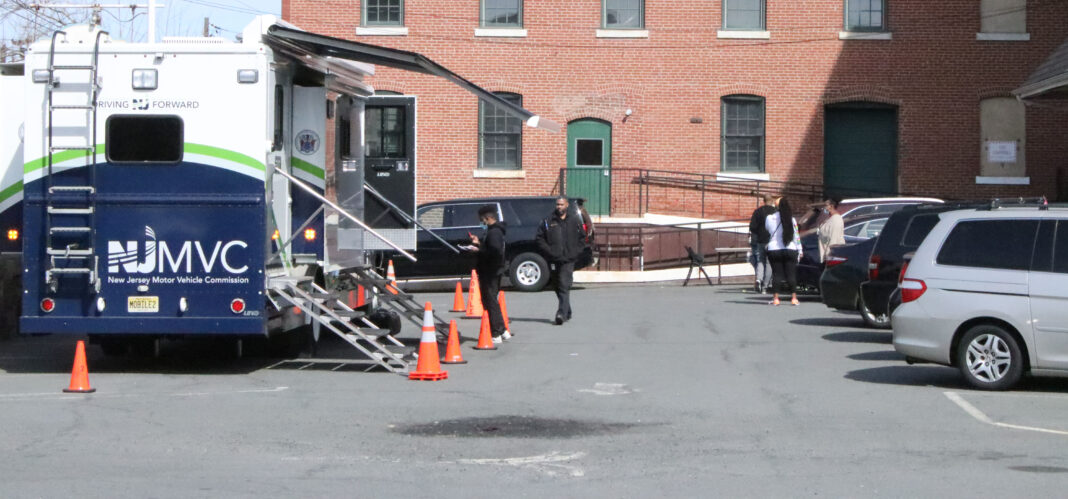On Tuesday, the Rescue Mission of Trenton partnered with the Motor Vehicle Commission to help Trenton residents get their government ID.
Getting an ID became more challenging as the pandemic continued leaving those at the Rescue Mission losing out on government help, Tyree Adams, the Team Care Coordinator for the Rescue Mission of Trenton, said. “After COVID, it was such a hard thing to get. And it’s so important, even with the new government money in terms of paying back…you need ID to qualify for these things because they have to do background checks.”
Clients of the Rescue Mission prepared by speaking with counselors and ensuring they have their six points of identification. Timothy Burum, a client of the Rescue Mission, said that Adams helped him get all of his paperwork together.
“My counselor told me it was coming up. So I made sure that I had…all my points together,” Burum said. He explained that the process of getting the ID was simple. The MVC was parked outside of the Rescue Mission, allowing guests in one at a time to take their photo and retrieve information. “I went into the truck, and they talked to me, checked out all of my points….made sure I was good.”
To add, anyone who worked with the rescue mission that had thier ID paid for would get the ID from the rescue mission when it arrived in the following weeks. “I’m very grateful. I understand the word what gratitude means,” Burum said.
Gaining an ID adds another piece of the puzzle for those at the Rescue Mission. After that, the sky is the limit. “It moves so fast, man. I’ve got housing. I got an apartment. I just got to find it got the money for that. I just got my ID card. Because that’s the missing puzzle… you need that to gain employment,” Burum said.
Seeing their clients succeed is all they need for those working at the Rescue Mission. The Manager of Communications, Patrick Sweeny, said that they had seen 157 individuals move from the shelter. “That to me, and particularly with a pandemic going on, is what this place is about. It’s about finding not just hope but also the potential and helping people get back on their feet, get jobs, get their housing, and then get back on the way,” Sweeny said.





